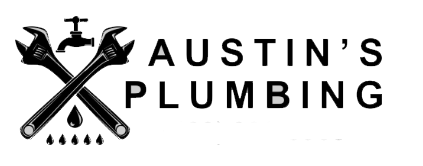New Construction Plumbing in Bristol, TN & Surrounding Areas
Austin’s Plumbing, LLC provides new construction plumbing for residential and commercial clients in
Bristol, TN, Bristol, VA, Blountville, TN, Elizabethton, TN, Kingsport, TN, Bluff City, TN, Johnson City, TN, Piney Flats, TN, and the neighboring areas. With solutions customized to match your unique needs, our knowledgeable staff specializes in new construction plumbing installation and repair.
We offer dependable service and high-quality equipment to guarantee your new construction project. Call Austin’s Plumbing, LLC at (423) 930-3968 to speak with our committed staff about your new construction plumbing installation and arrange an estimate.
Here’s Some General Information Regarding New Construction Plumbing:
Planning and Design
Plumbing for new construction is usually planned during the architectural and engineering design phase. This includes the layout for water supply lines, drainage, venting, and gas lines if applicable.
Permits and Codes
All plumbing work must comply with local building codes and regulations. Typically, permits are required before starting, and inspections are done at various stages to ensure compliance.
Materials
Common materials used in new construction plumbing include:
- Copper pipes for water supply due to durability and reliability.
- PEX tubing which is flexible, easier to install, and resistant to freezing.
- PVC for drain, waste, and vent systems.
Installation Process
- Rough-in Plumbing: During framing, plumbers install the plumbing lines but don’t connect fixtures yet.
- Pressure Testing: Water lines are pressure tested to check for leaks.
- Install Fixtures: Once walls and floors are closed in, fixtures like sinks, toilets, and showers are installed.
- Final Inspection: Ensures that all plumbing is working correctly and complies with codes.
Considerations
- Efficient water use fixtures to save water.
- Proper venting to avoid sewer gas issues.
- Accessibility for future maintenance.
If you have specific questions about a part of new construction plumbing or need information about a particular aspect, feel free to ask!
Commonly Asked Questions About Plumbing for New Residential Construction:
1. When should plumbing work begin in a new construction project?
Plumbing rough-in typically begins after the foundation is laid and framing is complete. This allows plumbers to install water supply and drain lines before walls and floors are finished.
2. What types of pipes are best for residential new construction?
Common choices include PEX tubing for water supply because it is flexible and easy to install, copper for its durability, and PVC or ABS pipes for drain, waste, and vent systems.
3. How are plumbing codes involved in new construction plumbing?
Plumbing must follow local building codes, which dictate pipe materials, installation methods, venting, spacing, and fixture requirements. Inspections are done at various stages to ensure compliance.
4. What is “rough-in” plumbing?
Rough-in plumbing refers to installing pipes and plumbing infrastructure inside walls, floors, and ceilings before installing fixtures or closing up building surfaces. It sets up the basic plumbing framework.
5. How do plumbers test for leaks in new construction plumbing?
Plumbers perform pressure testing, filling the water lines with water or air and pressurizing them to check for any leaks before finishing walls.
6. Can new construction plumbing impact energy efficiency?
Yes, choosing efficient fixtures and properly insulating hot water pipes can reduce water and energy waste, improving the home’s overall efficiency.
7. What plumbing fixtures are typically installed in a new residential build?
Common fixtures include sinks, toilets, bathtubs, showers, water heaters, and sometimes gas appliances if applicable.
8. How important is venting in new plumbing?
Proper venting is crucial to prevent sewer gases from entering the home and to ensure drains work correctly by allowing air into the plumbing system.
9. When is the final plumbing inspection done?
After all fixtures and appliances are installed and plumbing is operational, a final inspection is conducted to verify everything meets code and functions properly.
10. How can homeowners prepare to avoid plumbing issues in new construction?
Working with licensed professionals, reviewing plans carefully, choosing quality materials, and ensuring all inspections are passed can help reduce future problems.

